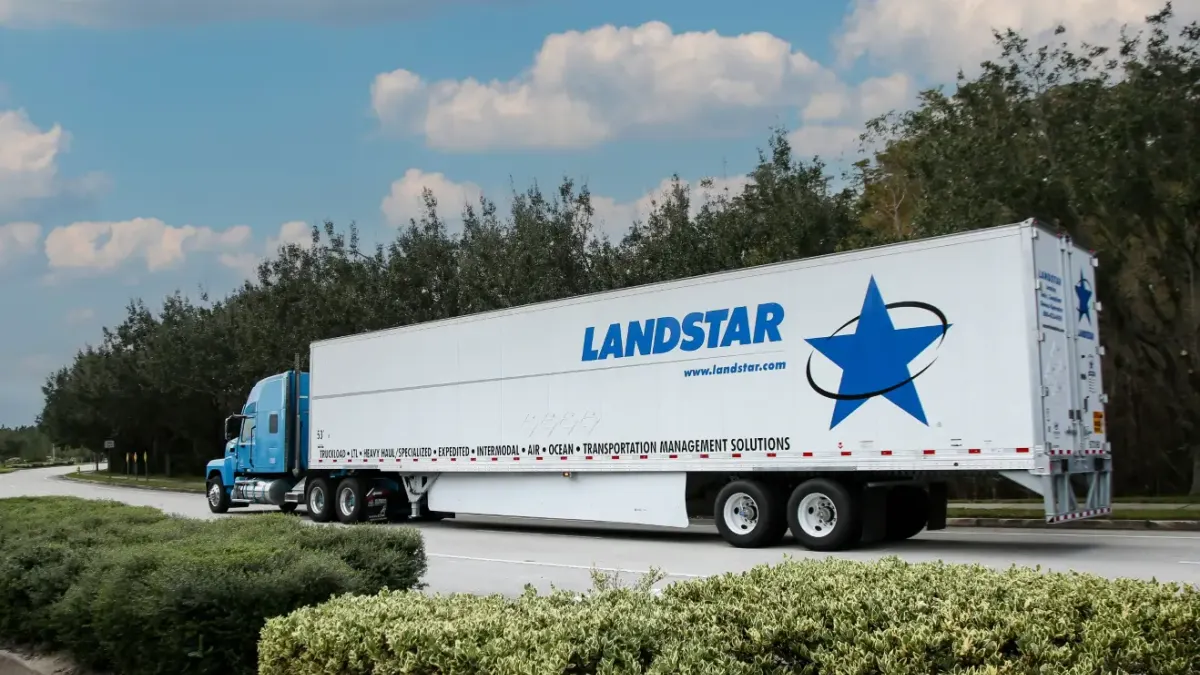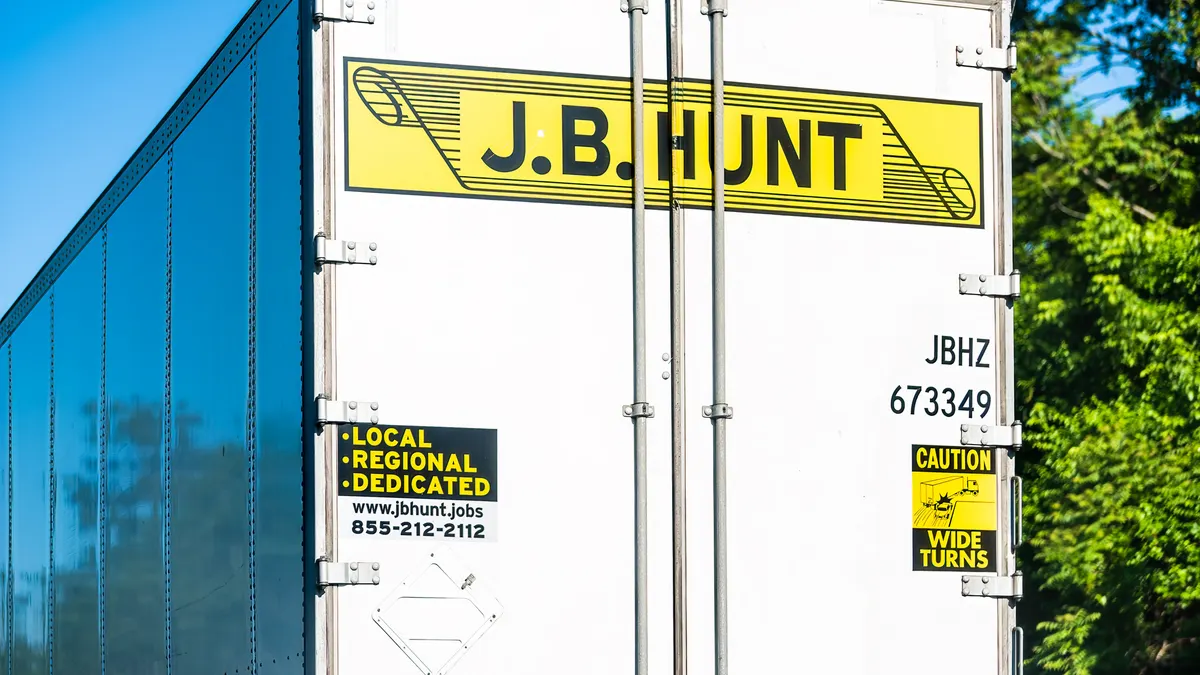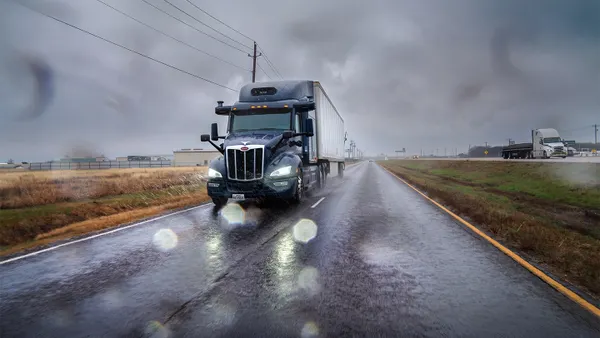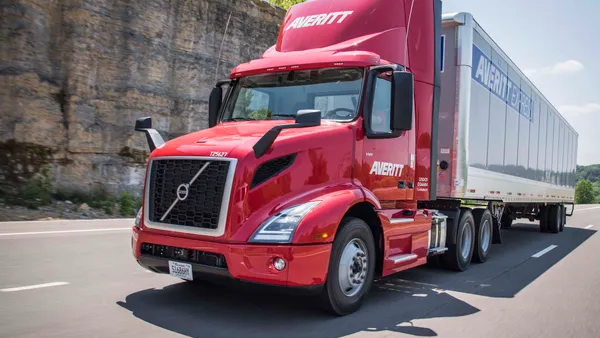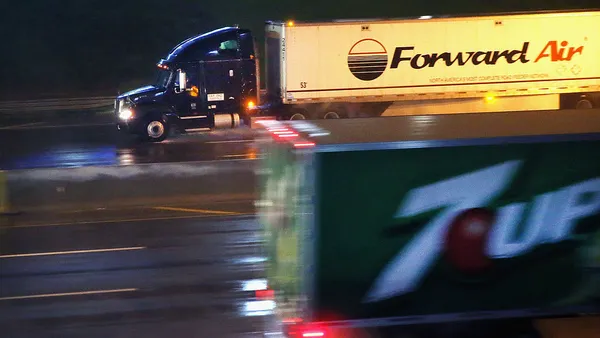Dive Brief:
- Landstar System’s truck revenue per load increased 2.6% in Q2, compared to the previous year’s second quarter. CEO Frank Lonegro told investors on a Q2 earnings call that the company’s revenue per load outperformed typical seasonality.
- While Landstar’s truckload revenue hauled via van equipment fell 4.5% year over year to $591 million in Q2, a decrease from $619 million in Q2 2024, truckload revenue hauled through flatbed equipment went up 5% YoY to $401 million.
- The company’s heavy haul service offering saw a 9% YoY increase in revenue during Q2, which outperformed its core truckload revenue, CFO James Todd said. The revenue growth was due to a 5% increase in heavy haul revenue per load along with a 4% increase in heavy haul volume.
Dive Insight:
While Landstar’s revenue as a whole decreased 1% YoY, as volume declined due to a softer freight environment, the company was able to increase revenue per load in trucking. Truck revenue per load was 2.6% higher YoY and offset by a 1.5% decrease in the number of loads hauled via truck over the same period. In fact, trucking revenue increased for the first time since Q3 2022, Lonegro said on the call.
Lonegro said that the truck revenue per load improvement, along with the compression of its brokerage margins, indicate a market that the company believes is working its way back toward being balanced.
While truck capacity continues to be readily available, he added, there are small pockets of supply-demand equilibrium and market conditions that continue to favor the shipper amidst choppy conditions in the industrial economy.
Ongoing tariff actions from the Trump administration and current economic conditions continue to cloud the truckload freight market, per analysis from DAT.
“The U.S. truckload market continued its decline in May 2025, with the ACT Research Volume Index falling to 42.5 for the third straight month,” DAT iQ Principal Analyst Dean Croke, said in a July 22 blog post on the dry van market.
Landstar’s results dovetail with the DAT report, as the fleet’s dry van revenue fell in the most recent quarter. By contrast, Landstar's heavy haul service has been positive for the company. The demand for infrastructure related to AI, such as data centers, along with wind energy, are contributing to the need for flatbed and bulk trucking services, Lonegro said. He expects that demand to continue into the third quarter.
Landstar VP and Chief Corporate Sales, Strategy and Specialized Freight Officer James Applegate said he sees a lot of that infrastructure build-out in its infancy, which is a positive for Landstar.
“You kind of tack on just some of the administration things now that they're doing with The Big Beautiful Bill and trying to spur domestic investment,” he said. “It plays very nicely into additional infrastructure type investment. So we're very positive about that.”


